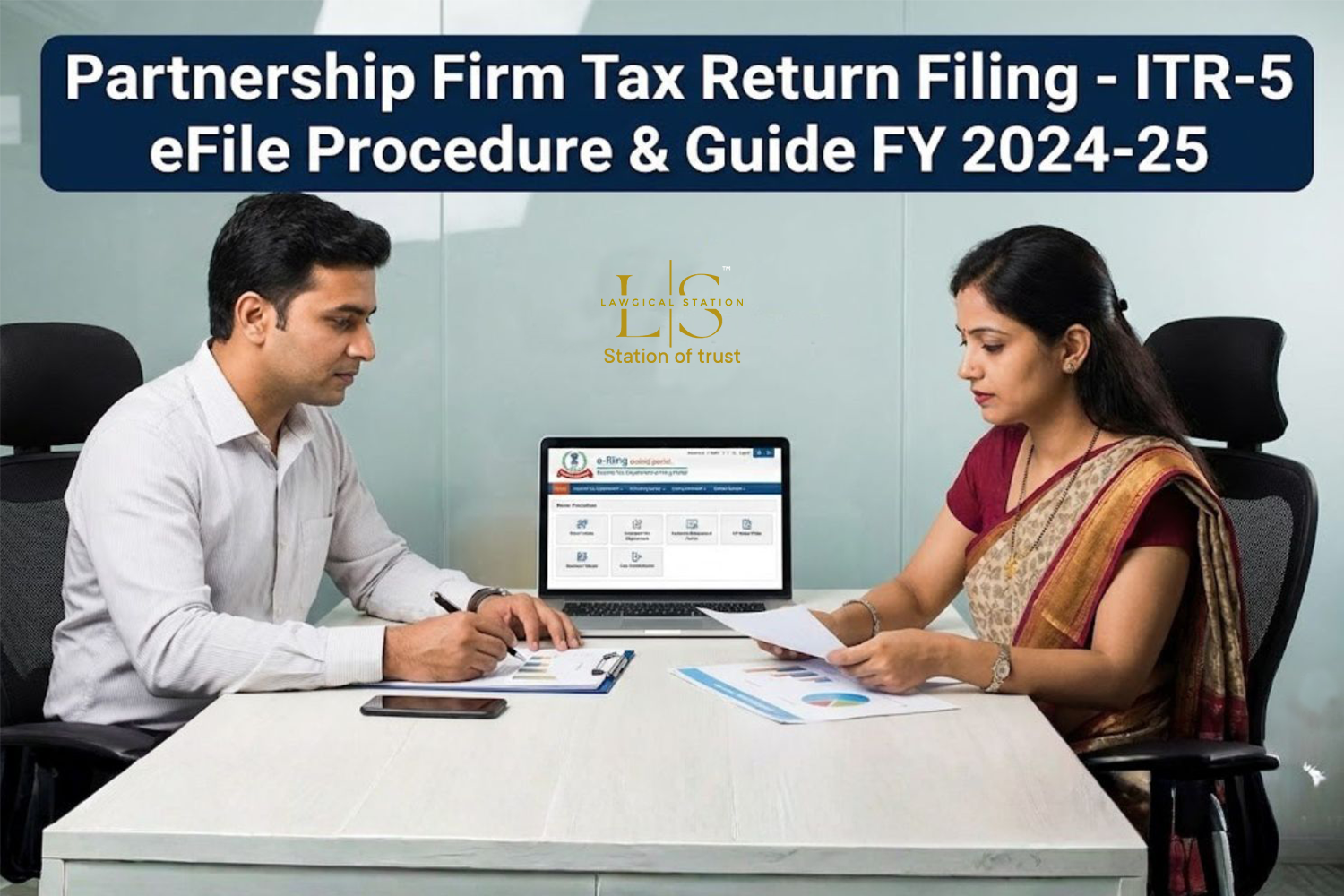Partnership firms represent a collaborative business structure where two or more individuals operate under a unified business entity. When it comes to income tax compliance, partnership firms must file their returns using ITR-5 form. The filing deadlines vary based on audit requirements: firms not requiring audit must file by 15th September 2025 (for FY 2024-25), while audited firms have until 31st October 2025. Understanding the available deductions and compliance requirements is essential for proper tax management.

Taxation of Partnership Firms
As per the Income Tax Act of 1961, partnership firms are subject to a flat tax rate of 30% on their total profits. When the firm's taxable income exceeds Rs. 1 Crore, an additional surcharge of 12% applies. Furthermore, a health and education cess of 4% is levied on the total tax amount. It's crucial to understand that registration status of the partnership firm does not impact its tax liability - both registered and unregistered firms are treated equally for income tax purposes.
Similar to Limited Liability Partnerships (LLPs) and private limited companies, partnership firms must also comply with Alternate Minimum Tax (AMT) provisions. The AMT ensures that firms pay a minimum tax of 18.5% on their adjusted total income, preventing firms from reducing their tax liability through excessive deductions and exemptions.
Deductions Allowed
Partnership firms can claim various deductions to reduce their taxable income, but certain limits and conditions must be carefully observed. Understanding these deduction rules is vital for accurate tax calculation and compliance.
Partner Remuneration Limits
Remuneration paid to working partners is deductible only within specified limits based on the firm's book profits. Any amount exceeding these prescribed limits cannot be claimed as a business expense and will be added back to the firm's taxable income. The limits vary depending on the firm's total income and the number of partners.
Interest on Capital Restrictions
Interest paid on partner capital contributions is deductible up to a maximum rate of 12% per annum. Any interest exceeding this 12% threshold is disallowed and must be added back to the firm's income. This restriction applies regardless of the actual interest rate agreed upon in the partnership deed.
Non-Working Partner Expenses
Expenses such as salaries, bonuses, remunerations, and commissions paid to non-working partners are not deductible under any circumstances. These payments are considered distributions of profit rather than business expenses, and must be excluded when calculating the firm's taxable income.
Filing of Tax Returns for a Partnership Firm
Partnership firms must use Form ITR-5 for filing their income tax returns. This form is specifically designed for firms and should not be confused with individual partner returns, which are filed separately using ITR-3 or ITR-4. The ITR-5 form captures comprehensive details about the firm's income, deductions, tax payments, and partner details.
Electronic filing through the Income Tax Department's online portal is mandatory for all partnership firms. Firms that are required to undergo tax audit must complete the e-filing process with a Class 3 Digital Signature Certificate (DSC) for authentication and verification. The digital signature ensures the authenticity and integrity of the filed return.
Due Date For Partnership Income Tax Return Filing
The deadline for filing partnership firm tax returns depends on whether the firm is subject to tax audit requirements. Understanding these deadlines is crucial to avoid penalties and interest charges.
Non-Audit Cases
For partnership firms that are not required to undergo tax audit, the income tax return must be filed by 15th September 2025 (specifically for Assessment Year 2024-25). This deadline applies to firms with turnover or gross receipts below the audit threshold limits.
Audit Cases
Partnership firms that are required to get their accounts audited must file their income tax returns by 31st October of the assessment year. This extended deadline accounts for the time needed to complete the audit process and prepare audited financial statements.
Frequently Asked Questions
Which type of ITR form is required for a partnership firm?
Partnership firms must use ITR-5 form for filing their income tax returns. This form is specifically designed for firms, Association of Persons (AOPs), and Body of Individuals (BOIs).
Is it mandatory for partnership firms to undergo an income tax audit?
Tax audit is mandatory when a partnership firm's turnover or gross receipts exceed Rs. 1 crore in business activities, or Rs. 50 lakh for firms engaged in professional services. The audit must be conducted by a Chartered Accountant and the audit report must be filed along with the tax return.
Can partnership firms file ITR-4 under Section 44AD?
Partnership firms can opt for presumptive taxation under Section 44AD if their total turnover or gross receipts do not exceed Rs. 2 crores. Under this scheme, firms can declare income at 8% (or 6% for digital receipts) of total turnover and file using ITR-4 instead of ITR-5.
Can a partner's salary be deducted as an expense under section 44AD & 44ADA?
Firms opting for presumptive taxation schemes under sections 44AD or 44ADA cannot claim deductions for partner remuneration or interest on capital. The entire income is computed on a presumptive basis, and no deductions for partner-related expenses are permitted under these sections.